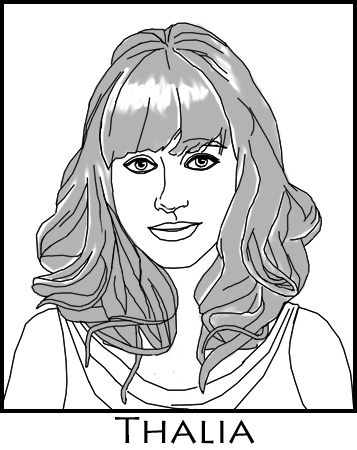

This was the most precious commodity under heaven—a lovely maiden in her mid-teens, immaculately dressed and apparently well-off, loose among the city’s males.
Forget philosophy and art. Forget Anaxagoras and the Parthenon and Pheidias’ thirty-eight-foot-tall Athena Parthenos of ivory and gold. Forget Pindar and Aeschylus and even Homer. Forget money and power and the honor that comes with courage in battle. This was the real prize sought by all males from thirteen to eighty, and for which all those other things were merely avenues for acquiring it: a radiant young woman in full bloom. Aristophanes prayed that their sex didn’t understand the power they held.
She wore a long women’s chiton of linen with no himation over it, so that her shoulders and arms were bare. Her garment was as dazzling white as Lysistrata’s was deep black. In most other ways she was Lysistrata’s opposite as well: all smiles and gaiety from the moment she passed through the doorway, and little more than five feet tall, with wavy hair the color of the walnut. Unlike Athenian women she wore it loose, and it tumbled down thickly past her shoulders. The two women did share large eyes, prominent cheekbones, and a slender build; but this girl’s mouth was broad and graceful, unlike Lysistrata’s.
